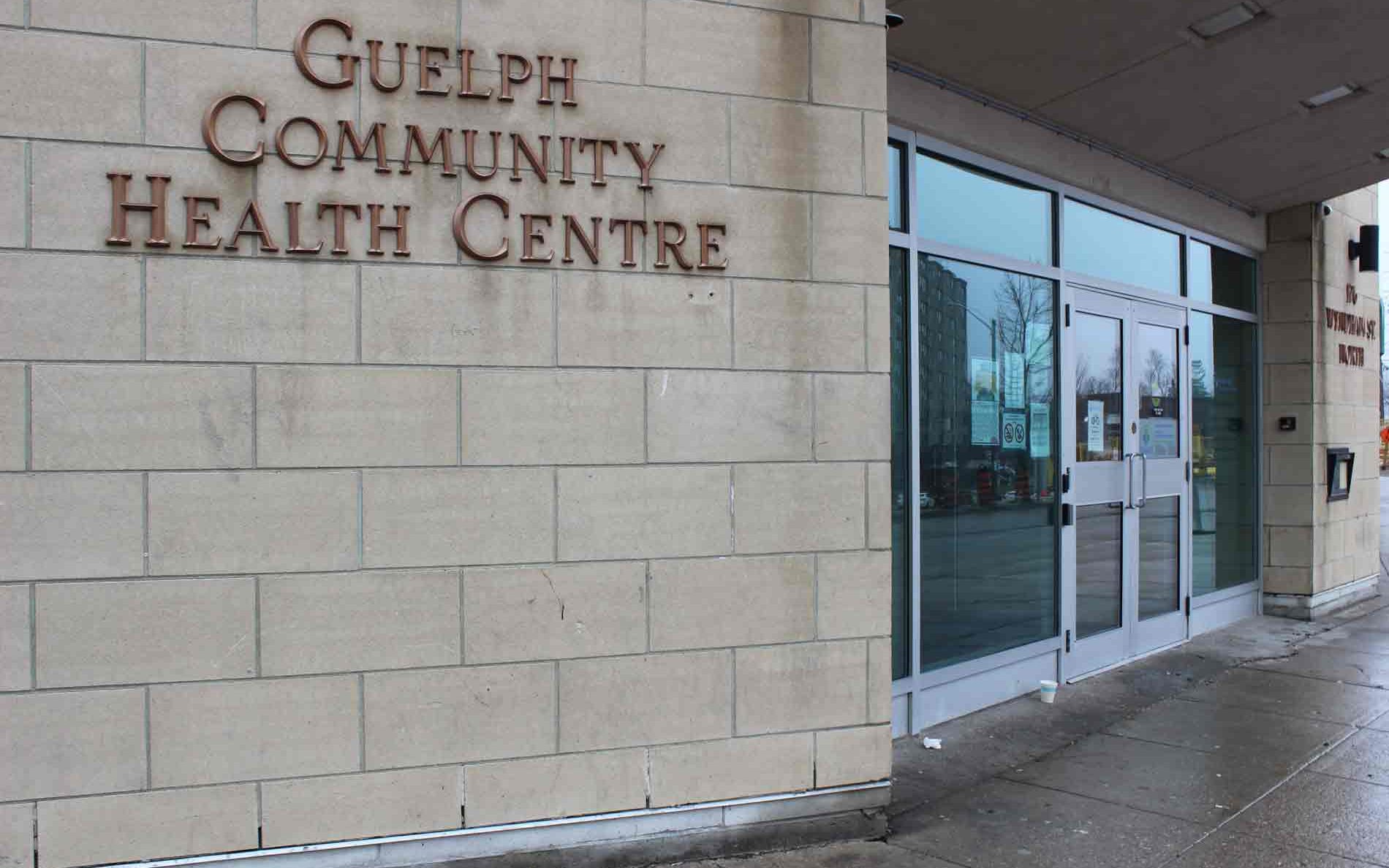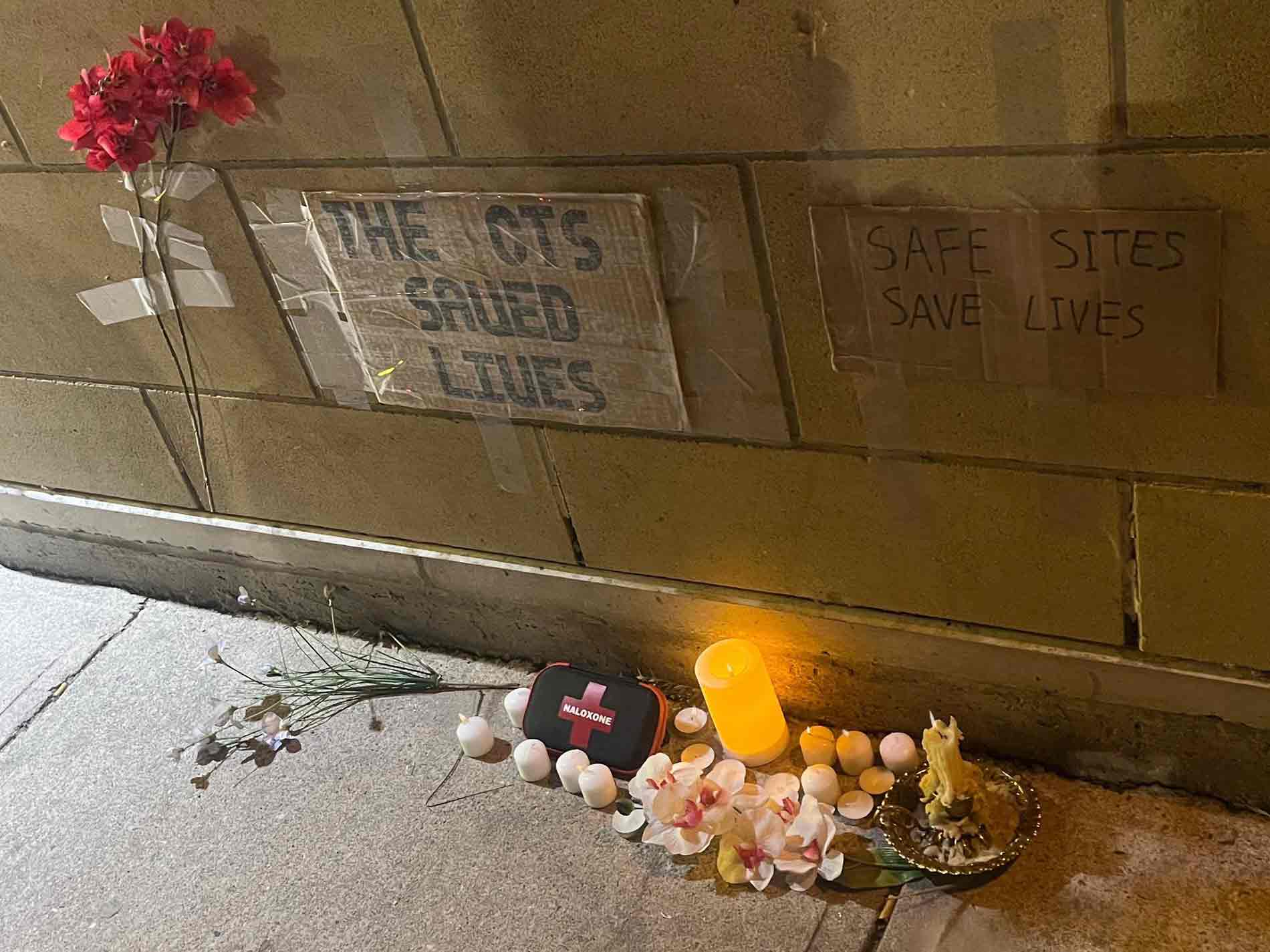GUELPH – People struggling with addiction, as well as harm reduction professionals, felt a glimmer of hope last week when news spread that a pause had been placed on the forced closure of ten Ontario supervised consumption sites.
But nine of the ten sites still had to close permanently on March 31, including those in Guelph and Kitchener.
In December, the province passed Bill 223, prohibiting supervised consumption sites (SCS) from operating within 200 metres of a school or daycare facility, meaning 10 sites had to close before April 1.
The bill also resulted in the ending of provincial funding for consumption and treatment services (CTS).
A neighbourhood group that runs a SCS in Toronto, along with two individuals who use SCSs, are challenging the act in court, claiming it violates the Canadian Charter of Rights and Freedoms.
The judge presiding over the case, Justice John Callaghan, granted an injunction on March 28 that permits those sites impacted by the bill to remain open until 30 days after he makes a decision on the matter.
But the only one set to remain open is the Kensington Market Overdose Prevention Site, which is run by the neighbourhood group involved in the charter challenge.
In the injunction, Callaghan states supervised consumption sites “provide both lifesaving and health benefits and, as a result, there is a serious issue whether this legislation violates Section 7 of the Charter.”
Section 7 declares “Everyone has the right to life, liberty and security of the person and the right not to be deprived thereof except in accordance with the principles of fundamental justice.”
Provincial officials assert the reason for prohibiting sites within 200 metres of schools and day cares is to “protect vulnerable children and youth” by reducing their exposure to “concentrated disorder” near the sites.
“Some of the disorderly conduct relayed in the affidavits filed by the respondent includes people passed out in front of schools, urinating and defecating in public, confrontational behaviour by intoxicated people, drug transactions outside SCSs, drugs being consumed outside SCSs, and discarded needles, pipe and drugs in the vicinity of schools and day cares,” the injunction states.
Callaghan said the closure of the sites will cause irreparable harm to the two individuals involved in the case.
Katharine Resendes of Toronto and Jean-Pierre Aubry Forgues of Kitchener testified that they “rely on the services offered by the SCS including supervised consumption of drugs and reversal of overdoses, clean drug paraphernalia such as needles, testing of the drug supply to ensure a safe product, and referrals and access to other health and social services,” the injunction states.
“They both described their inability to abstain from opioids due to their addictive nature and severe withdrawal symptoms, and their fears of death by overdose – a risk they feel is mitigated by the services provided at SCS … They both described overdoses they have experienced and credited SCSs with saving their lives and protecting their health,” it continues.
“If the SCS are closed, the applicants will be at risk of not having access to a safe consumption site. As a result, both will consume drugs without supervision and, in doing so, will be at greater risk of overdose and death,” Callaghan states in the injunction.
“They will also be at greater risk of blood-borne diseases, such as hepatitis C and HIV,” he added.
Callaghan notes this impact will go beyond the two individual applicants in the case.
“Death and disease that would have been prevented will now not be prevented, because those who would have used an SCS will now consume drugs in less safe settings,” Callaghan states.
Guelph Consumption and Treatment Services
The SCS in Guelph is part of the Guelph Community Health Centre (GCHC).
GCHC CEO Melissa Kwiatkowski told the Advertiser “it was really hopeful to see that the court has recognized that the closing of SCSs will cause significant harm, including loss of life.
“But the government has been clear that they will not fund these sites and that they would withhold funding for those that continue to operate,” she said.
“So within those constraints, we are not able to continue to operate our CTS.”
The funding Kwiatkowski is referring to is for Homeless and Addiction Recovery Treatment (HART) Hubs.
Each of the nine SCSs that closed on March 31 are set to become HART Hubs instead. HART Hubs are “not a replacement for CTS sites,” Kwiatkowski said, “but they are investments that we need and we want it to be a success.”

Guelph’s supervised consumption site was located at the Guelph Community Health Centre downtown. Staff there have now transitioned to offer the Guelph Wellington HART Hub instead of Consumption and Treatment Services. Photo by Robin George
The Guelph Wellington HART Hub opened on April 1 and provides “care, housing and treatment for people in our community with the most complex needs,” according to GCHC officials.
These services include health care, social supports, outreach services and crisis stabilization, but not supervised consumption or needle exchange.
In addition to supervised consumption services, the Guelph CTS offered harm reduction supplies, naloxone, health education, safe syringe disposal, a space for supervised quiet activities, foot and wound care, medical assessments (including HEP, HIV and STI screening), access to drug testing technology and walk-in virtual addiction medicine, referrals to addiction treatment, mental health supports, primary care, housing, social services and income support.
“It’s really difficult knowing the closure of these services will leave a critical gap in the continuum of care in our community,” Kwiatkowski said.
Since it opened in 2018, she said the Guelph CTS site had over 41,000 visits and reversed about 320 drug poisonings with no fatalities.
There has never been a fatal overdose at a supervised consumption site in Ontario.
There were also about 1,000 referrals to primary care and in the last year and a half, an average of 44 people per month were connected to on-site, on-demand addiction and treatment support services, Kwiatkowski said.
“Many harm reduction services act as a low-barrier entry points into the more formal, treatment based services,” she noted.
“We have been operating the whole continuum (including harm reduction and treatment) for the past three years.”
On the CTS site’s final day of operation, she said, “We are taking time today to hold space for our staff and our clients, just to acknowledge the leadership of the staff who have been running this evidence-based life-saving program amidst a public health crisis for five years, with a lot of success.”
Kwiatkowski paid homage to the significant impact CTS staff made on the community and how they show up every day with love, compassion, dignity and expertise.
“Over the last six, seven months it would have been really easy to just be really angry and upset,” she said.
But the staff “continue to come and show up for each other and for clients with a level of hope and compassion and love and understanding that I think is truly inspiring.”
She said all of the staff previously providing consumption and treatment services are transitioning to providing HART Hub services.
Asked about hope for the CTS site opening again in the future, Kwiatkowski said things were “really complex.
“We will definitely continue to advocate with our partners to have a full and comprehensive continuum of care for substance use in this community,” she said.
“This is not an either/or situation – this is both/and. We need the HART Hub investments and we need a full and fully resourced harm reduction part of the continuum as well.”
The Guelph Public Library announced on March 31 that it now has naloxone kits available for pickup at its downtown location and is providing training on their use.
Library staff have been trained in de-escalation and overdose response.
This month, the library will install an outdoor community sharps drop box for safe disposals of needles. There are already sharps drop boxes in the bathrooms.
“Harm reduction supports must be a collaborative community effort and the Library recognizes the role we play in understanding the complexity of the opioid crisis in Guelph,” stated library deputy CEO Michelle Campbell.
“With uncertainty around Guelph’s CTS site, providing additional supports like naloxone kits will help prevent overdoses at a critical point for our community.”



